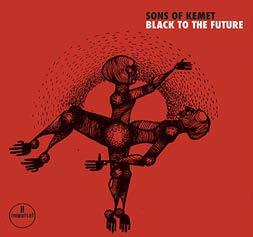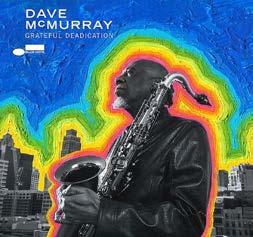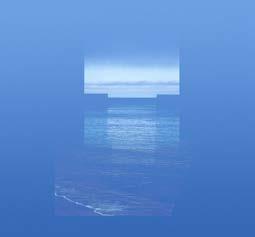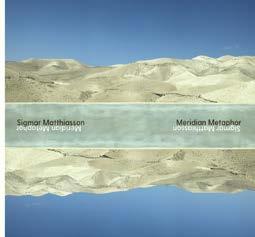
4 minute read
Jazz 1: By Tony Hillier
ALBUMS: Jazz 1
BY TONY HILLIER
Advertisement
SONS OF KEMET BLACK TO THE FUTURE Impulse Records

Saxophone and clarinet supremo Shabaka Hutchings is not only one of the leading lights of London’s thriving nu-jazz scene, but a mover and shaker in world jazz. His latest enterprise with the Mercury Prize-nominated Sons of Kemet, one of a handful of diverse outlets for his talents, epitomises the buccaneering spirit of this bold musical adventurer. With Black To The Future, Hutchings puts down a powerful new template for 2020s’ jazz, virtually eschewing soloing in favour of a rhythmic, melody-hugging wall-of-sound concept driven by just his own instruments in tandem with the thumping tuba of Theon Cross and a couple of percussionists and, on selected tracks, caustic commentaries from vocalists and rappers from both the UK and US that address issues of socio-political oppression articulated by the ‘Black Lives Matter’ movement. A sense of menace generated by sustained tuba notes and rattling drums underscores poet Joshua Idehen’s assertion that white supremacy stifles black imagination. The general sense of despair is echoed elsewhere in lines like: “Black is tired/ Black ‘s eyes are vacant/ Black’s arms are leaden”. It’s not all vitriolic, though. In the relatively upbeat standout song ‘Hustle’, English toaster Kojey Radical applauds the indomitable nature of the human spirit. It counters the ferocity of tracks like ‘Pick Up Your Burning Cross’. Coloured with Caribbean calypso and soca strains, axis instrumentals ‘Think Of Hope’ and ‘To Never Forget The Source’, which reflect Hutchings’ Barbadian ancestry as well as his philosophical outlook and positivity, are for this reviewer the pick of a hypnotic record that might well be viewed as a landmark release in years to come.
DAVE McMURRAY GRATEFUL DEADICATION Blue Note

Both Jazzheads and Deadheads will find plenty to like in tenor saxophonist and multi-instrumentalist Dave McMurray’s 21st century Detroit take on repertoire penned by the Grateful Dead, those postwar 20th century San Francisco champions of counter-culture. While primarily instrumental, ironically it’s the set’s two vocal tracks, ‘Loser’ and ‘Touch Of Grey’, that stand out — courtesy of respectively stunning and soulful performances by Bettye LaVette and Herschel Boon, the former backed by the Dead’s co-founder/guitarist Bob Weir, pedal steel maestro Greg Leisz and Blue Note boss Don Was. Some of the Grateful Dead’s more extended jam-oriented pieces, such as ‘The Eleven’ and ‘Dark Star’, in which McMurray leads his core band (on keyboard, flute and percussion as well as muscular sax) take on a sharper and jazzier shape, compared to the Dead’s LSDinduced meandering of yore. ‘Estimated Prophet’, however, retains the original’s compelling reggae groove (and wah-wah guitar), while ‘Eyes Of The World’ and ‘The Music Never Stopped’ are arguably more funkadelic and spirited than the earlier renditions. In a nutshell, Greatful Deadication is an album suffused with groove-based modern jazz and great sax playing.
SLOWLY ROLLING CAMERA WHERE THE STREETS LEAD Edition/Planet

Where The Streets Lead sustains the lush aural trajectory of Slowly Rolling Camera’s lauded 2018 album Juniper, which marked the Cardiff-based collective’s growing reputation as bold fusioneers. Their seamless blend of jazz, trip-hop and cinematic soundscapes is consolidated on a bolder endeavour that takes surprise twists and turns on epic tracks such as ‘Widest Possible Aperture’ and ‘The Afternoon Of Human Life’ without forfeiting lucidity or melodic values. With an 8-piece string section and a stellar guest list that has Scandinavian trumpeter Verneri Pohjola and double bassist Jasper Høiby and American saxophone supremo Chris Potter augmenting the core line-up led by pianist Dave Stapleton and guitarist Stuart McCallum, SRC unselfconsciously push the parameters of their intoxicating amalgam.
DANIEL HERSKEDAL HARBOUR Edition/Planet
Like so many top-drawer Nordic jazz composers and instrumentalists, Norwegian tuba player Daniel Herskedal draws on the breathtaking geography of his homeland for inspiration. The rugged coastline of Norway is tangible in the lyrical beauty and rhythmically charged latitudes of his latest collaboration with the renowned pianist Eyolf Dale and one of Scandinavia’s finest percussionists, Helge Andreas Norbakken. Between them, the trio generate the sonority of a much larger band, with Herskedal displaying a versatility of sound not normally associated with his instrument. Harbour might have been recorded at a studio on a remote ocean-side island, but the music radiates warmth as well as reflecting the unconquerable power of nature just beyond its confines.
SIGMAR MATTHIASSON MERIDIAN METAPHOR Reykjavik Record Shop


Iceland is not exactly synonymous with jazz, but Sigmar Matthiasson is doing his level best to change that perception. The New Yorkeducated bassist and composer’s second album — recorded in a Reykjavík studio — offers an intriguing melange of music that includes Balkan and Arabic as well as modern jazz influences. Matthiasson’s collaboration was hatched in the Big Apple, where he hooked up with guitarist Taulant Mehmeti from Kosovo and Tunisian percussionist Ayman Boujlida, who make guest appearances in a track apiece on Meridian Metaphor. The core band, though, comprises fellow Icelandic compatriots, whose lead work on oud, clarinet and piano blend symbiotically with the leader’s bowed and plucked double bass, a drummer and intricate arrangements that offer twists and turns aplenty.










